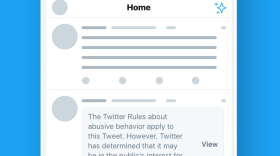
Aarti Shahani
Aarti Shahani is a correspondent for NPR. Based in Silicon Valley, she covers the biggest companies on earth. She is also an author. Her first book, Here We Are: American Dreams, American Nightmares (out Oct. 1, 2019), is about the extreme ups and downs her family encountered as immigrants in the U.S. Before journalism, Shahani was a community organizer in her native New York City, helping prisoners and families facing deportation. Even if it looks like she keeps changing careers, she's always doing the same thing: telling stories that matter.
Shahani has received awards from the Society of Professional Journalists, a regional Edward R. Murrow Award and an Investigative Reporters & Editors Award. Her activism was honored by the Union Square Awards and Legal Aid Society. She received a master's in public policy from Harvard's Kennedy School of Government, with generous support from the University and the Paul & Daisy Soros fellowship. She has a bachelor's degree from the University of Chicago. She is an alumna of A Better Chance, Inc.
Shahani grew up in Flushing, Queens — in one of the most diverse ZIP codes in the country.
-
The appeals court upheld a lower court decision from last year that says the president conducts government business on his personal Twitter account, so all Americans must be able to access it.
-
Immigration and Customs Enforcement officials scanned driver's license databases and used facial recognition technology to analyze millions of photos without permission in at least three states.
-
Twitter won't delete the tweets of politicians that are bullying or derogatory, but it will label them. The service has been criticized for its handling of tweets posted by President Trump and others.
-
Facebook banned far-right extremist Alex Jones. But it won't remove from the platform the warlord Lt. Gen. Mohamed Hamdan Dagalo, even though he oversaw the killing of more than 100 people in Sudan.
-
YouTube is under fire for collecting data on children and may face a federal investigation. Consumer groups allege that YouTube exposes children to inappropriate content and fails to police videos.
-
Facebook says that by next year people on apps like Whatsapp and Messenger will be able to basically text payments. This news comes as regulators are asking if the tech giant is already too powerful.
-
Punch Line, the oldest comedy club San Francisco, may be the next casualty in the city's steady march from bohemian enclave to tech office park. Politicians and comedians are fighting to save it.
-
Google is, in effect, negotiating with the Commerce Department on behalf of the Chinese telecom giant, according to the senior Huawei official.
-
Lawmakers and regulators are both looking into antitrust violations, getting tougher on a quest to strengthen oversight of Big Tech. But antitrust laws were written with other industries in mind.
-
The Trump administration backed off an order to U.S. firms to stop doing business with the Chinese company Huawei. Chipmakers raised concerns that the ban would harm U.S. competitiveness globally.
-
The move follows Facebook's ban of many far-right figures for violating its hate speech policies and a U.S. refusal to work with governments and social media companies to fight extremism online.
-
Tech giants met with a dozen countries Wednesday to sign a joint agreement on how to block terrorist content online. The Trump administration said Wednesday that it would not endorse the plan.



